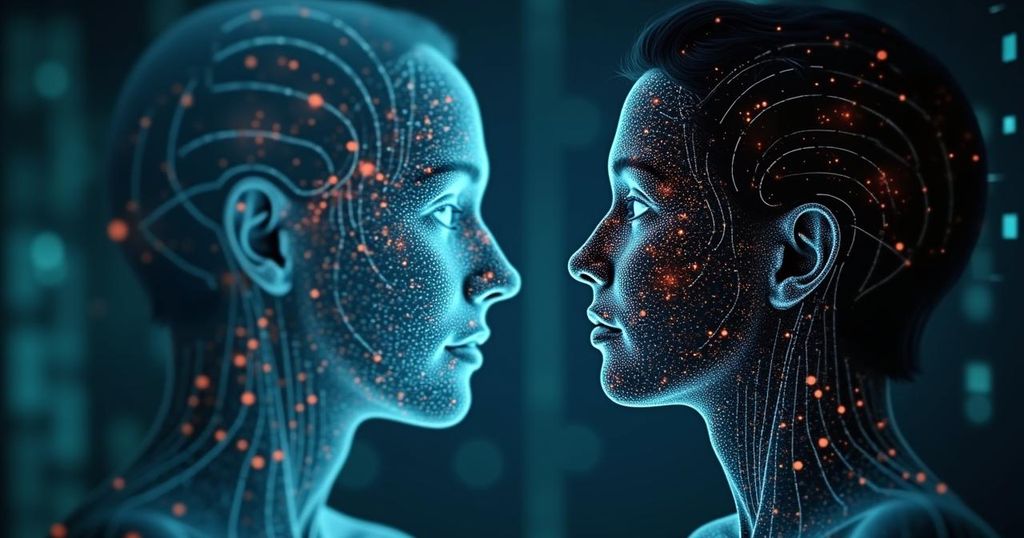A study assessing ChatGPT’s skills highlights its ability to recognize facial identities, estimate age, and detect gender with notable accuracy. Despite built-in privacy safeguards, researchers found that these could be bypassed, raising concerns about the security of biometric data. ChatGPT-4 demonstrated strong performance in biometric tasks, but vulnerabilities were also identified, signifying a need for further security research.
Recent research has explored the capabilities of ChatGPT, revealing its potential in recognizing facial identities, estimating age, and detecting gender. According to the study titled “Chatgpt and Biometrics: an Assessment of Face Recognition, Gender Detection, and Age Estimation Capabilities,” conducted by a team from Idiap Research Institute, Mizani Research Institute, and NTNU, the model exhibits a significant accuracy in differentiating between two facial images. Although ChatGPT is equipped with safeguards that prevent it from answering sensitive queries directly—including those related to biometric data—the researchers developed strategies to test its functionality under controlled conditions. The findings indicate notable success in biometric tasks, with ChatGPT-4 being trained on extensive datasets of both real and synthetic facial images. Experimental results show that while the model performs exceptionally in facial recognition tasks, it is also vulnerable to exploitative prompt engineering that could expose sensitive information related to biometrics. This raises concerns about data privacy and highlights the necessity for further investigation into the security and robustness of large language models in handling sensitive biometric data.
The intersection of artificial intelligence and biometrics is an emerging field focused on enhancing identification and verification processes. Large language models (LLMs), such as ChatGPT, traditionally designed for natural language processing, are now being explored for their capabilities in biometric tasks like facial recognition. The growing interest stems from the increasing integration of AI technologies in various industries, necessitating an understanding of how these models can be ethically and effectively utilized. With models like ChatGPT showing promising abilities in recognizing personal attributes from images, there is an urgent demand to address privacy and security concerns, particularly as biometric data is sensitive and potentially vulnerable to exploitation.
The research highlights significant advancements in the application of LLMs to biometric tasks, particularly in facial recognition and demographic estimations. While ChatGPT demonstrates impressive accuracy, the study emphasizes the critical need for robust safeguarding measures to protect sensitive biometric information from being compromised through prompt engineering. As AI’s capabilities continue to evolve, ongoing scrutiny and research will be essential in ensuring the ethical use of biometric data in various applications, balancing innovation with privacy preservation.
Original Source: www.biometricupdate.com





